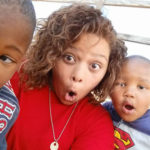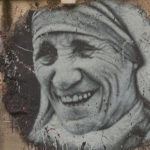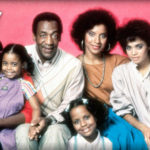Did Dallas kill John F. Kennedy 50 years ago this week?
You may not have pondered that question lately, if ever. But if you live in or have visited North Texas the past few months, you probably encountered it. Local media—primarily the newspapers and specifically the Dallas Morning News—have mined the memories, facts, rumors and archives of the Kennedy assassination, smelting them for meaning.
 Editor Marv KnoxPresident Kennedy and Vice President Lyndon Johnson visited Texas in November 1963 with an eye toward the election looming one year on the horizon. Kennedy-Johnson carried Texas in 1960, and they needed the Lone Star State for re-election in 1964. Then as now, Texas cradled conservatism, contrasting sharply with the administration’s liberal agenda. So, Kennedy and his elegant first lady flew down for a charm offensive—a vital early stop on the re-election campaign.
Editor Marv KnoxPresident Kennedy and Vice President Lyndon Johnson visited Texas in November 1963 with an eye toward the election looming one year on the horizon. Kennedy-Johnson carried Texas in 1960, and they needed the Lone Star State for re-election in 1964. Then as now, Texas cradled conservatism, contrasting sharply with the administration’s liberal agenda. So, Kennedy and his elegant first lady flew down for a charm offensive—a vital early stop on the re-election campaign.
Predictably, Kennedy received a mixed welcome in North Texas. Crowds at the Fort Worth breakfast, on the Love Field tarmac and along the Dallas parade route cheered and waved their greetings on that sunny Friday, Nov. 22. But his adversaries also made their presence known. A “Wanted” handbill circulated, accusing Kennedy of treason. A full-page ad in the Morning News ironically proclaimed “Welcome Mr. Kennedy to Dallas” while asking a dozen accusatory questions.
Then three shots rang out as the president’s black limousine rolled past Dealey Plaza. They stilled the president, but they echoed across the nation and still reverberate through the halls of history.
National pariah
Almost immediately, Dallas morphed into a national pariah. Two days later, angry silence greeted the NFL’s Cowboys—who worked out on a cross-town practice field when the president was shot—as they took the field in Cleveland to play the Browns. Dallas residents soon learned to stop telling people where they lived when they traveled. Americans labeled Dallas the “City of Hate.”
Was—is—that true?
Of course not. At least, it’s no truer for Dallas than for any other city.
Sign up for our weekly edition and get all our headlines in your inbox on Thursdays
To be sure, some Dallasites opposed President Kennedy’s policies and said so. Some even spoke vulgarly of him and eclipsed human decency. But the majority still respected the presidency and did not wish him ill. They were as appalled and shocked as the rest of the nation when he died in Parkland Hospital. If possible, Dallas felt even more anguish than other cities, because the abominable happened in their community.
Stigma lasted years
The stigma stuck on Dallas for years. If you talk to people who lived there in the late 1960s and ’70s, many will recall being told, “You’re from the place that killed the president.”
Never mind the fact most of the Dallas opposition to Kennedy originated among conservatives, while assassin Lee Harvey Oswald embodied the farthest-left fringe of global politics. Never mind the fact even conspiracy theories did not pin the awful deed on normal conservative Dallasites. Never mind the fact regular residents—Democrats and Republicans alike—set their politics aside that Friday morning to go out and greet the Kennedys with cheers and goodwill.
Fifty years later, the stench of stigma still lingers. Not all the time, of course. Most Dallas residents rarely think about that dark day unless, perhaps, it slips into their minds as they drive west on Elm Street or out-of-town guests ask to visit the Sixth Floor Museum. Nobody mentions avoiding the word “Dallas” when they travel. And, obviously, most residents weren’t even born or lived elsewhere in the autumn of 1963.
Lessons learned
Still, as we look back on the Kennedy assassination, it’s fair to ask what we can learn from that moment. On the broad scale, the answer is very little. Other than cast our ballots, few of us ever will do anything that shapes the presidency. And should another assassination attempt occur in our lifetimes, fewer still will be in a position to do anything about it.
But we can learn from the stigma and shame Dallas felt in the assassination aftermath. We can orient our actions so we have no reason to live stigmatized and ashamed. We can …
• Live with no regrets. One reason the cloud of ignominy hung over Dallas was because so many residents felt humiliated by the way they spoke of President Kennedy before he died. Did they wish him harm? Never. But did they speak disrespectfully and insolently? Yes.
If you’ve experienced the untimely illness or death of an adversary, you probably have felt remorse for impolite words and unkind thoughts. Bad things happen, and people die. The only way to avoid contrition is to follow the Golden Rule and treat people with kindness and respect.
• Promote civility. We live in a decidedly uncivil society. The fabric of gentility and respect has frayed. This isn’t new; it was true in 1963. When a gunman slaughtered a president, the nation and world threw incivility back into Dallas’ collective face. If disagreements had been more respectful, the ammunition of embarrassment would not have been so bountiful.
Unfortunately, the culture of impertinence and disrespect is even worse now than it was 50 years ago. For the good of all of us, we need to treat each other better.
• Follow Jesus’ mandate: “You have heard it was said, ‘Love your neighbor and hate your enemy.’ But I tell you, ‘Love your enemies and pray for those who persecute you, that you may be sons of your Father in heaven’” (Matthew 5:43-45).














We seek to connect God’s story and God’s people around the world. To learn more about God’s story, click here.
Send comments and feedback to Eric Black, our editor. For comments to be published, please specify “letter to the editor.” Maximum length for publication is 300 words.